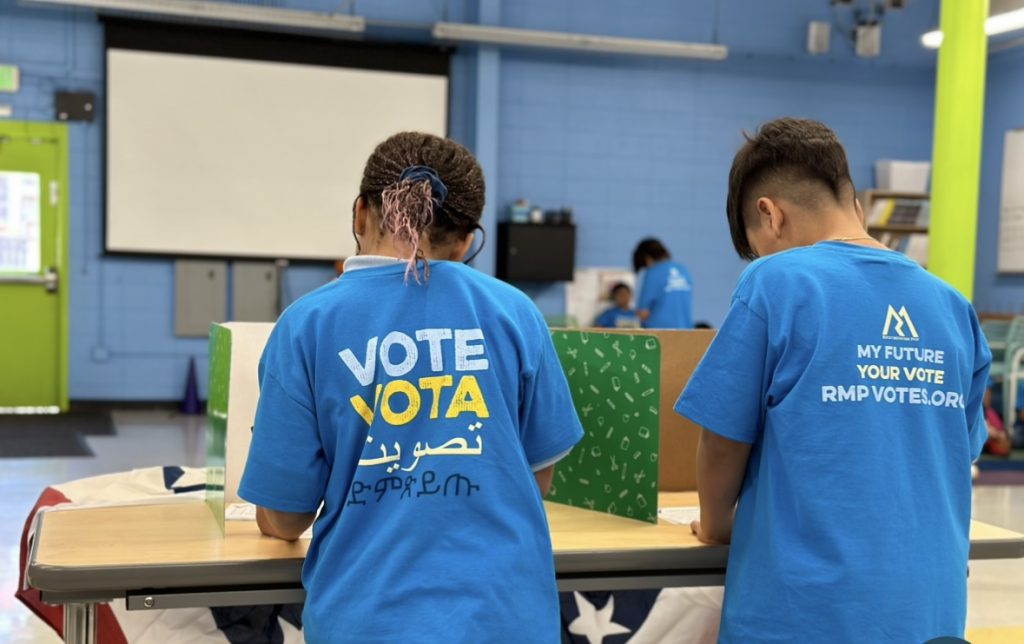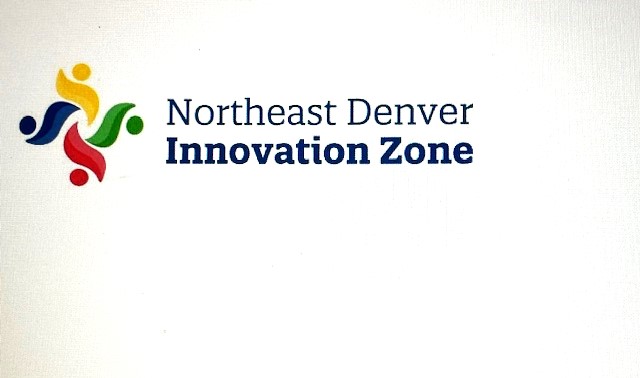Leadership of the Denver Classroom Teachers Association is pressuring the school board to enact changes next month that could hamstring the city’s innovation schools.
In response, dozens of innovation principals have sent a letter to the school board, saying such a decision now would demonstrate skewed priorities during a pandemic, and urged the board to hold off on a decision until fall, after a community-focused process plays out.
In a letter sent last week to the seven Denver school board members, the DCTA Executive Committee said innovation schools, which are run by the district but have more autonomy than traditional neighborhood schools, are used as “an instrument to weaken the rights of educators.” Therefore, the letter says, “(we) encourage you to take immediate action on the proposed changes to the innovation policy process.”
On Friday, 45 innovation school principals and innovation zone leaders responded, sending their own letter to the school board. They stressed that they want to work with broad-based community representatives to craft a workable solution to the disagreement over how innovation plans are voted upon. But now is not the time, they said.
“As DPS educators, we would have expected to be asked to focus on students and their families during this pandemic,” the letter says, calling the proposed accelerated decision “deeply alarming.”
Earlier this year, new school board member Brad Laurvick, who received strong financial and logistical backing from DCTA during his campaign, floated a resolution to change how schools vote to approve innovation plans. Since the state’s Innovation Schools Act took effect in 2008, plans have had to receive 60 percent support from school staffs and governing councils during separate votes. But the plans were voted on in their totality.
Laurvick, proposed a change that would require separate votes for each waiver from collective bargaining agreements and district regulations. Some union leaders had long been unhappy that some waivers allowed innovation schools to work around clauses in agreements focused on working conditions, including hours worked, length of contracts, and processes for dismissing teachers.
But innovation school leaders and advocates have stressed that innovation plans are, in most cases, carefully crafted with community input (including teachers) and that removing individual waivers could fatally weaken the plans, rendering them ineffective.
Last month Laurvick agreed to postpone a vote, originally scheduled for this spring. That apparently prompted the DCTA letter urging that the vote take place as soon as possible.
The DCTA’s letter (full text at the end of this article) asserts that innovation plans have caused teacher turnover, especially among educators of color. “We have heard countless stories of manipulative voting processes and misinformation that have led to educators voting for plans that waive fundamental rights…” The letter also says that six of seven school board members “publicly committed to supporting this policy” in February. “To wait is to side with forces within and outside our district that seek to weaken the rights of educators and community members.”
In their letter, innovation school leaders offered several reasons why now is not the time to make so momentous a decision. First, they argued, they need to focus their attention and energies on supporting their school communities as everyone tries to adjust to remote learning.
Second, work over the summer must be focused on “students’ and families’ most basic needs.”
Third, how innovation votes are conducted will have a major impact on innovation schools. Families and communities want to be involved and should be involved. But given the magnitude of challenges faced by many DPS families, “we cannot, in good faith, add innovation voting protocol to our parents’ and guardians’ plates right now.”
Finally, they wrote, while in the normal course of business changes to innovation plan votes would represent a major decision, in this highly unusual time, there are more important priorities.
“Any narrative that is not focused on meeting the needs of our school communities is hurtful and counterproductive and distracting from the important work of teaching and learning. Now more than ever, our focus should be on students,” the letter says.
Full text of DCTA letter:
Dear Board of Education,
We, the Board of Directors of the Denver Classroom Teachers Association, are writing to encourage you to take immediate action on the proposed changes to the innovation policy process.
Over the last ten years, schools throughout the district, especially in the Far Northeast and Southwest, have used the Innovation Schools Act as an instrument to weaken the rights of educators – causing teacher turnover and push-out, especially among educators of color. We have heard countless stories of manipulative voting processes and misinformation that have led to educators voting for plans that waive fundamental rights to non-probationary status, planning time, parent voice in Collaborative School Committees, and many others.
The proposed policy change, which creates a two-step voting process, gives educators the right to vote line-by-line on whether or not waivers to board policy, the DCTA/DPS Agreement, and state law are necessary to the goals of the innovation school. This proposed process will protect educators in innovation schools and allow schools that have used the innovation law positively to continue.
We recognize that we are living in unprecedented times, and the Board has a lot of decisions to make about the future of our district. We have heard from our members that this policy cannot wait. Educators are making decisions about their futures now, and schools are beginning to plan their innovation process for next year. We need clear guidance and clarity from the Board as soon as possible, and educators need to understand that their rights will be protected at innovation schools that are voting next year.
Six of you publicly committed to supporting this policy in February at a press conference organized by the DCTA Black Educators Caucus and Coloradans for the Common Good (CCG). Three of you publicly committed to taking action to address educator rights in innovation schools in front of 500 people at the CCG assembly in October. It is time to stand by those commitments and show your support of educator voice and transparent processes. To wait is to side with forces within and outside our district that seek to weaken the rights of educators and community members. We call on you to put forth and approve the new innovation process at the June board meeting.
Sincerely,
The DCTA Board of Directors
Tiffany Choi, President
Rob Gould, Vice President
Rachel Sandoval, Treasurer
Priscilla Shaw, Secretary
Kathryn Fleegal, CEA Board
Christina Media, Director
Chris Christoff, Director
Valeria Lovato Director
Michelle Horwitz, Director
Dave Hammond, Director
Nik Arnoldi, Director
Beverly Thurman Baldwin, Director
Katie Allen, Director
Elise Lucero, Director
Beverly Wadman, Director
Robert Armagost, Director
Nicole Fetter, Director
Hazael Roman Lagunas, Director
Moira Casados-Cassidy, Director
Sean Davis, Director
Lynne Valencia Hernandez, Director




